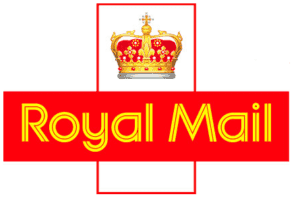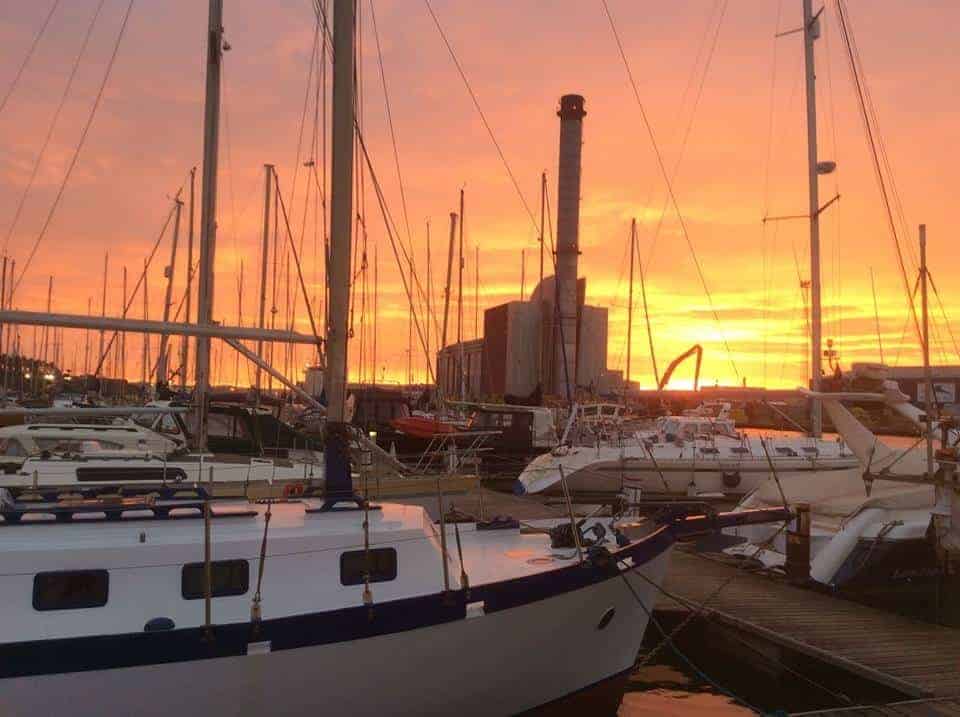Table of Contents
What Is A Residential Mooring?
A residential boat mooring is an official space provided by a landowner or marina with the approval of the local authority for continuous occupation. In the United Kingdom, residential moorings for sea-going vessels in particular, are few and far between, so for someone who is adamant on living life on the water, what are the options?
Like many people, I had always wanted to live on a boat and experience the escapism that came with it. It was through imagination that I fell into the water gypsie lifestyle. I was forever picturing myself on a beautiful deck, cold beer in hand with no care in the world. I decided it was time take the plunge. Sorry, I do apologise you’ll never read an article from me without a cheesy boat related pun! Anyhow, I purchased my first boat; a beautiful Jaguar 27. It wasn’t as easy as I expected but I got lucky. Through doing this I worked out how moorings in the UK tend to work and how to go about getting one.
Location Location
As you may already know, the chance of finding somewhere to moor your boat is dominated by your location. How popular is your dream site and is the marina a tourist hotspot? My first boat was situated in Brighton, East Sussex on the South Coast.
As you can imagine in Brighton living costs are high therefore there are a lot of people who like the idea of living on a boat. At the time of searching, I had a job where I talked to one or two customers about their homes daily. They often asked me where I lived, to which I grimaced, “an expensive flat share”, and then went on to talk about my interest in living on a boat. You will find that most people like the idea of living on a boat and often know someone that is doing the same. As a matter of fact in Brighton, the expensive house prices lead many people to live on the water making it a competitive place to start!
Another example of a highly popular destination is Bristol. The waiting list for a residential mooring at the time of writing this article is claimed to be 1-2 years! Once an application has been made, a boat is then added to the waiting list. If an available mooring comes up that suits your boat size you’re further contacted. In Bristol, in particular, there is a large off-grid community and therefore moorings naturally become scarce.
The way to get around this is by joining local clubs, talking to people and helping others. For example, where does your harbour master drink? Buy him a pint! Is there renovation work going on at the marina? Offer to give them a hand! It’s all about who you know that leads to finding the off grid boating communities in these popular liveaboard destinations.
But just be aware that if you want less hassle and prefer being a social recluse, then smaller villages and towns have shorter waiting lists and may be easier.
FINANCE And Boat Insurance
Finance is a big factor when it comes to getting a mooring. First of all, you need to buy a boat, then you need to insure it. Third party insurance is always required to move a boat in the water; this covers a vessel for damage that may be incurred to other boats whilst moving it. Smashing into a ten grand yacht on your way into the marina is costly and therefore insurance is important! Any smart landowner or marina will make this a requirement and in some cases won’t even allow the mooring without it.
Like boat’s, marinas come in all different shapes and sizes. Brighton, for example, is very commercial with a shopping centre, multi-storey car park, tonne’s of restaurants, takeaways and boat yards, and as a result of this it is also bleddy expensive! Most marinas will have their full rates and charging schedule available by either paper form or a website. This means it is easier than ever to plan how much your mooring would cost per month or even annually. Brighton is great, it has it all, but personally I feel its popularity and commercial feel make the environment less appealing. There is nothing worse than coming out the shower to a catwalk of tourist paparazzi who are there to ‘see the boats’.
Choosing a marina that is slightly out of the way or less popular will not only be quieter but it will save you money. It’s the small marinas that often have the great communities. Maybe it only has two cold showers and a rather stinky toilet block, but who cares! You will be much happier not having to work 5, 6 or even 7 days a week to afford it. Worrying about mortgages or next month’s rent simply isn’t fun, therefore: why do it?
Making the calls
Now your finance is in check it’s time to get enquiring. You may be lucky enough to have a marina that has residential moorings but for the majority of places, this simply isn’t the case.
First of all, you need to know what moorings are available locally. At this stage, it is time to put on your friendliest telephone voice and in addition, you will need to sound non-authoritative. Why is this you ask? Well, legally for a person to be living on any boat they must be “in transit”. This means that it is expected to move a boat every two months.
For canal boats, this is much more regulated with some boat owners losing their licences for not moving far or often enough. However, sea-vessels are less commonly lived on and marinas prefer to have some liveaboards for general security. This means that they will allow you to stay as long as if anyone official asks you tell them that you are a vessel in transit. For this reason, they may think you are someone checking up over the phone and therefore it is best to stay subtle.
Don’t have great a phone manner? Don’t worry, your best bet is to visit in person anyway. It is easier for mooring owners to see if someone is genuine in the flesh. Being friendly and respectful goes a surprisingly long way, especially when it comes to proving your worth. With this in mind expect to hear all the standard questions: what do you do for work? How many hours? That’s right, nobody wants someone who’s just quit their job to take a mooring. The idea of a nomad non-working lifestyle is great but you still have to pay your bills.
Facilities
Unfortunately, the things that people have taken for granted in life will come home to roost. The word facility does not quite cut the mustard, it should be named ‘stuff to keep people alive’. Water and electric are important but with a non-residential mooring, a landowner or marina is not held accountable.
Consequently, if water or electricity is cut off there are no legal requirement for it to be fixed. This can prove to be massive facility issue, as understandably we all need water.
Electricity being down for a day isn’t a massive issue unless of course, it’s winter, -5 outside and your entire boat relies on electric heaters! Suddenly your boat becomes unlivable and henceforth this can be a massive issue with non-residential moorings. Luckily marinas will normally notify residents of work due to commence or any recent problems but not in all cases. Don’t expect too much, complaining about facilities can potentially get a boat removed from a mooring.
Post
Without an address, it is pretty damn hard to receive a parcel or even a letter. Don’t worry, there are methods to work around this.



- See if your local marina will receive letters on your behalf.
- Use a local postal collection service: amazon locker, royal mail, doddle are just some of the many services that exist which are either free or very cheap.
- With permission ask to register your bank at a parent or friends address.
- Go full nomad and train up a carrier pigeon.
If All Else fails
When a location is too popular the best method of securing a mooring is to choose a town where there is less demand. If a prime location is still at heart then it’s time to get on your best detective coat and talk to the locals. Well that’s pretty obvious, right? If both of these methods don’t work then there is one last trick:
Buy a boat that is s already in the right location
This technique works amazingly well, not only can money be saved on transportation but the hassle involved in the purchase is massively reduced. Before buying a boat always check if it is possible to continue the mooring. Never take a sellers word for it, ask the marina owner if all debts have been paid. A boat can often accrue debt from harbour dues, marina fees and port tax.

